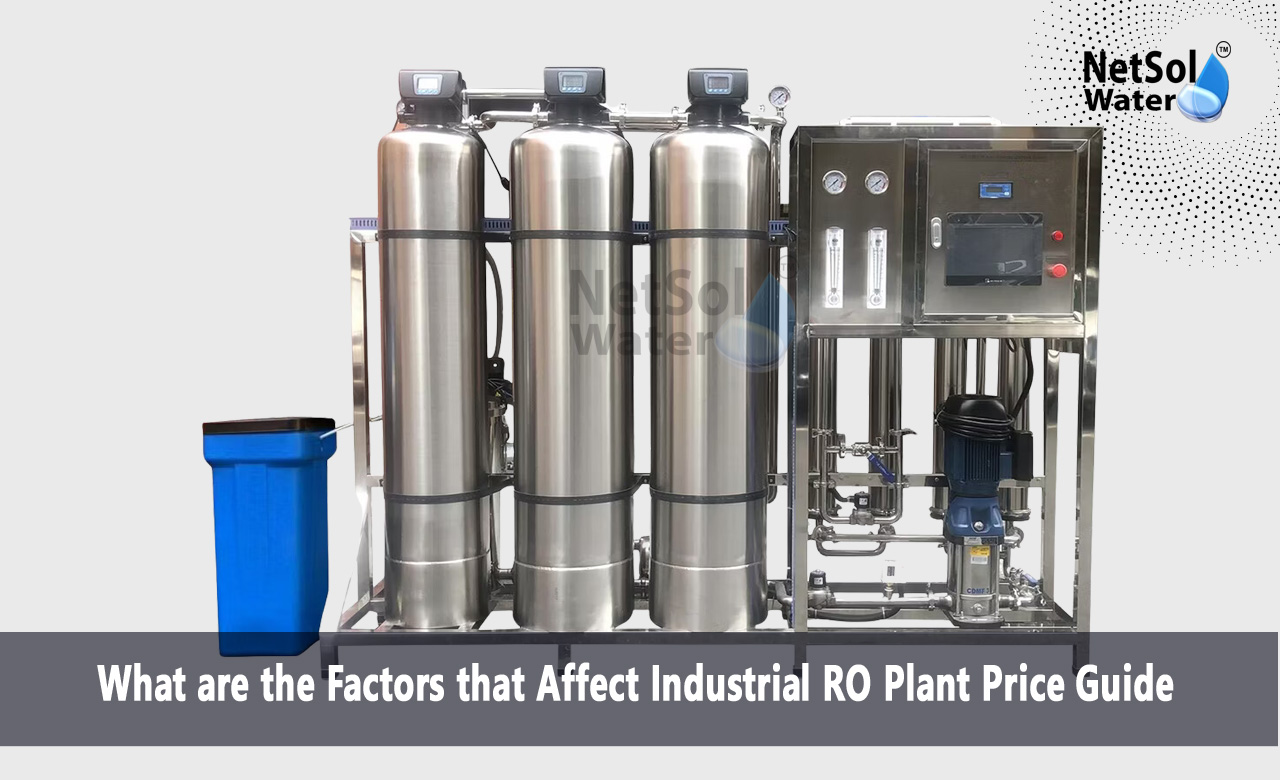Industrial RO Plant Price Guide: Factors That Affect Cost
Access to clean and treated water has emerged as a critical requirement of industries growing with the change in environmental and operational needs. Industrial RO Plant, as the very backbone of water purification in factories, manufacturing units, and other industrial setups, offers several advantages, though it may vary on a different basis with the varying cost of its installation and maintenance. We’ll explore the key factors that influence the industrial RO plant price and how businesses can make informed decisions.
Understanding the Need for Industrial RO Plants
The industrial process operations are require multiple volumes of purified water for cooling, washing, and manufacturing purposes. Poor quality water may damage the equipment, shut down the production process, and incur added costs. An Industrial RO Plant helps mitigate these risks by providing high-quality treatment for water. But to know what drives the industrial RO plant price of these systems is a must to ensure industries get the right returns for their money.
Factors That Determine the Cost of Industrial RO Plants
1. Plant Capacity
The capacity is the most significant determining factor of the plant's cost. Higher-capacity plants demand higher capacity membranes, pumps, and tanks, resulting in increased total cost. An example is those in Bengaluru industries that consume huge volumes and, therefore require high capacity plants to satisfy them.
2. Type and Quality of Feedwater
The feedwater inlet quality has a significant impact in establishing the system complexity level. According to the nature of the raw water, if there is a high concentration of salts, heavy metals, or organics, then the RO plant needs such extra pre-treatments that make it expensive to the user.
· Sources that have soft waters: Need very minimal pre-treatment. Therefore, they are relatively cheaper to be processed.
· Hard or Saline Water Sources: Require high-level filtration, thus the initial investment will be higher.
3. Degree of Customization
Each industry has its own requirements, and a highly customized RO plant will be more expensive than a standard model. Industries in Pune, for instance, may require specific systems for pharmaceutical production, where ultrapure water is a must, which adds to the cost of customization.
4. Technology and Components
The technologies deployed in the RO plant determine the cost and effectiveness of the unit. Advanced features like energy recovery systems or automated controls increase the efficiency but have a higher cost. Similarly, better-quality materials, such as longer-lasting membranes, corrosion-resistant tanks, and high-efficiency pumps, also add to the overall cost but guarantee long-term reliability.
5. Installation and Space Requirements
The installation cost will depend on factors such as site conditions, available space, and the complexity of the setup. Compact plants that are designed for smaller industrial setups may be cheaper to install compared to large-scale installations in factories, which usually require extensive groundwork and space optimization.
6. Maintenance and Operating Costs
While the capital investment in an Industrial RO Plant is very high, operating costs, including membrane replacement, energy usage, and servicing, also make up the cost of ownership. High energy efficiency and long-lasting parts will likely be more expensive upfront but decrease the operating cost over time.
7. Regulatory Compliance
Industries must adhere to environmental regulations regarding wastewater discharge and water reuse. Plants designed to meet strict compliance standards, particularly in cities like Chennai with rigorous water management policies, often include additional features that influence the price.
How to Choose the Right Industrial RO Plant?
· Assess Your Water Needs: Understand your daily water consumption and the quality of your raw water.
· Consult Experts: Meet with reliable manufacturers or consultants to design a plant that meets your specific requirements.
· Compare Long-Term Costs: It is not just the initial cost but operational and maintenance costs also.
· Look for Value-Added Features: Choose those systems that provide energy efficiency, durability, and easy maintenance.
Cost-Saving Tips for Businesses
· Invest in Pre-Treatment Systems: Proper pre-treatment not only reduces the stress on RO membranes but also helps extend their lifespan and ultimately reduces maintenance costs.
· Opt for Modular Designs: Modular RO plants can be scaled up as your business grows, spreading out the investment over time.
· Regular Maintenance: A well-maintained system operates efficiently, reducing energy consumption and preventing costly repairs.
The Future of Industrial RO Plants
The future of Industrial RO Plant technology is in energy-efficient designs and water recycling capabilities. Modern systems are designed to minimize waste, recover valuable byproducts, and integrate seamlessly into existing industrial setups. As industries in cities like Hyderabad and Ahmedabad continue to prioritize sustainable practices, investing in advanced RO plants will become a competitive advantage.
Conclusion
An Industrial RO Plant is an essential investment for any industry that wishes to improve the quality of water, protect its equipment, and comply with environmental standards. The industrial RO plant price depends on several factors such as capacity, technology, and customization, but the knowledge of these aspects helps businesses make informed decisions. By choosing the right RO plant and emphasizing maintenance, industries can achieve cost-effective water management solutions that are both operationally efficient and environmentally responsible.
Do you need an advice or assistance on selecting the best water and waste water treatment unit? We have solutions for all your problems!
Let us know your problem, our experts will make sure that it goes away.
For an assistance or related query,
Call on +91-965-060-8473 Or write us at enquiry@netsolwater.com



